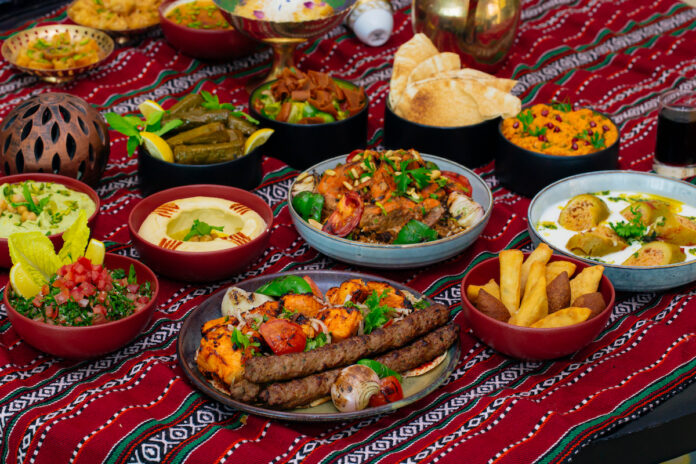DUBAI: As the sun rises on Thursday, the holy month of Ramadan will begin, ushering in a period of quiet contemplation, fasting during the day, feasting with family and friends in the evening, and getting in touch with our spiritual side.
This is also a time when youngsters look to their community and want to join in the festivities. Parents then have a tough call to make: Are their children ready for fasting? And, if the answer is yes, how can they ensure it is a relaxed, happy experience?
The first thing to remember is not to start too early — those younger than 7 may face negative consequences, health experts warn.
Dr. Samer Saade, specialist paediatrician at UAE-based Medcare Medical Center, said: “Children can start fasting when they reach puberty, so that’s between 10 and 14 years in girls and 12 to 16 years in boys. All in all, the best age to start fasting is between 10 and 12 years old.”
The second thing to keep in mind is the effect that lack of food can have on mood and cognitive function, especially since children need more fluids and energy to meet their body’s metabolic demands and for brain development.
“While fasting, a child’s demeanor may range from weakness, fatigue, decreased cognitive function, altered sleep schedule, reduced attention span and short temper to headache, abdominal pain and fainting spells,” Dr. Nasreen Chidhara Pari, specialist pediatrician at UAE-based Life Medical Center.
Slow and steady
(Shutterstock)
The key to a successful fast is being gradual, with short periods of abstinence, experts say.
“Parents should decide how long their child will fast (if they fast), based on their child’s health, eating frequency, ability to tolerate hunger and activity level,” Pari said.
She suggests children attending school carry an emergency food pack with a snack and water to break their fast if they become dizzy or find themselves unable to continue.
Should a child break their fast, it is important for adults nearby to stay calm and offer reassurance.
Practice positive reinforcement when a child breaks their fast; tell them it is OK and encourage the child to try again when they feel ready. “Extend the duration of fast time in small increments,” she said.
Gentle parenting
(Shutterstock)
Saade echoes this sentiment, calling for positive thinking, gentle parenting and remaining calm during the process. This will ensure a more effective path to fasting, and also raise a child’s self-esteem.
During this period, what we eat becomes doubly important. Sakina Muntasir, a dietitian with UAE-based Prime Hospital, said that suhoor for children should be similar to suhoor for adults in order to prevent thirst, hunger pangs and make the fasting period comfortable.
“Oats, eggs, wholegrain bread and fruit are all good choices,” she said.
When it comes to iftar for children, begin with fresh juice or water-rich fruits or dates.
“Avoid fried or oily foods when breaking the fast. Divide the evening meal into three parts, iftar, dinner and post dinner, to ensure the child has good opportunities to take in enough nutrition,” she said.
Dinner should be a balanced meal with healthy carbs, protein and vegetables. After dinner, have them eat a few nuts and a glass of milk before bed.
Golden triangle
(Shutterstock)
Children can be notoriously picky eaters, so remember the golden triangle: protein, fiber and healthy fat for a healthy meal.
Following these guidelines will ensure a healthy first fast. However, if suhoor is skipped or child is not eating well, give them a multivitamin to avoid any weakness or deficiencies, Saade said.
Dr. Shahid Gauhar, specialist paediatrician and neonatologist with UAE-based Prime Hospital, said: “Do not force children to overeat during suhoor or iftar. It is likely to result in indigestion, bloating and discomfort.”
Keep the sweets at bay. “Avoid high-sugar food since it will increase their cravings, and provide few nutrients but many unneeded calories,” he said.
Experts agree that knowledge is key to a successful fast. Explain the significance of Ramadan and observing a fast, so it is not just about mimicking grown-ups. Reward milestones, whether it is five hours or a whole day of fasting.
“Celebrate their first fast with family and friends, and reward them, said Gauhar.
Activity during Ramadan
(Shutterstock)
Play is important for all children, even those fasting, in order for the brain to develop.
However, during the holy month, exercise and activity must be approached differently.
“Prepare activities to keep them busy during the day, but avoid those that need a high level of energy,” Gauhar said.

